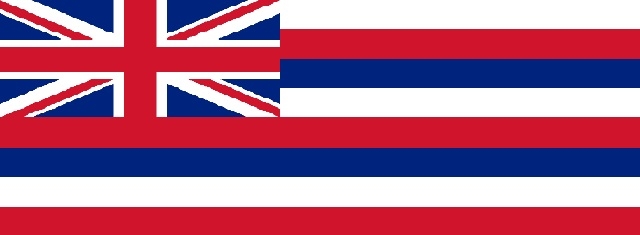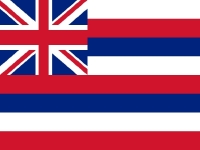Miscellaneous
HAWAI FACING GENETICALLY MODIFIED CROPS TO RESIST PESTICIDES
GM FOOD A SOURCE OF DEBATE

Hawaï Flag (Source: © Ruby BIRD & Yasmina BEDDOU)
The extraordinary biodiversity, along with the intractable problem of invasive species would seem to make Hawaï the least likely place to grow controversial crops, risking their uncontrollable spread. But scientists seed companies and some scientists seem convinced that the benefits outweight the risks of damage to the fragile ecosystem. Genetically modified food has been a source of debate since hitting the market in 1994.
The EU had banned the imports of GM for 20 years, however in 2006, the World Trade Organization (WTO) ruled that the ban violated international trade rules. The US Food and Drug (FDA) had deemed it sage and has so far declined to limit or block the industry.
A GMO (genetic modified organism) is created by scientists in a laboratory where they insert genes into an organism to create new traits. In the United States, GMO's are not labeled. They are in over 75% of processed supermarket foods in ingredients like foy lecithin, canola, corn syrup, and cotton seed oil.
Genetic engineering is completely different from traditional breeding, scientists can breach species barriers set up by nature. (Hawaï seed)
Local doctors around the hawaiian archipelago are right into a controversy for the past few years regarding corn being genetically modified to resist pesticides, is a source of prosperity or a birth defect and illness. On August 9, 2015, around 10,000 people marched through Honolulu's Waikiki tourist district. They were showing their frustration with facing cases of illness suspected due to the GM corp.
Local doctors around the hawaiian archipelago are right into a controversy for the past few years regarding corn being genetically modified to resist pesticides, is a source of prosperity or a birth defect and illness. On August 9, 2015, around 10,000 people marched through Honolulu's Waikiki tourist district. They were showing their frustration with facing cases of illness suspected due to the GM corp.
In Kauai, chemical companies Dow, BASF, Syngenta and DuPont spray 17 times more pesticide per acre than on ordinary cornfields in the US mainland, according to the most detailed study of the sector, by the Center for Food Safety. The World Health Organization this year announced that glyphosate, sold as Roundup, the most common of the non-restricted herbicides, is "probably carcinogenic in humans" (The Guardian)
In 2008, Hawaï fertile soil has nourished more than 2,230 field trials of genetically modified crops, including corn, soybeans, cotton, potatoes, wheat, alfalfa, beets, rice, safflower, and sorghum, more than any other state. As a result, many US seed companies, including Pioneer Hi-Bred, Monsanto and Syngenta, have turned the Islands into a sprawling living nursery for GM corn seed. Genetically engineered corn seed was at that time the top crop in Hawaï. (Scientific American)
Ruby Bird Hawai Pesticides Extraordinary Biodiversity Intractable Problem Species Place Controversial Risking Scientists Companies Benefits Damage Ecosystem Organization World Trade Organization
Liability for this article lies with the author, who also holds the copyright. Editorial content from USPA may be quoted on other websites as long as the quote comprises no more than 5% of the entire text, is marked as such and the source is named (via hyperlink).






